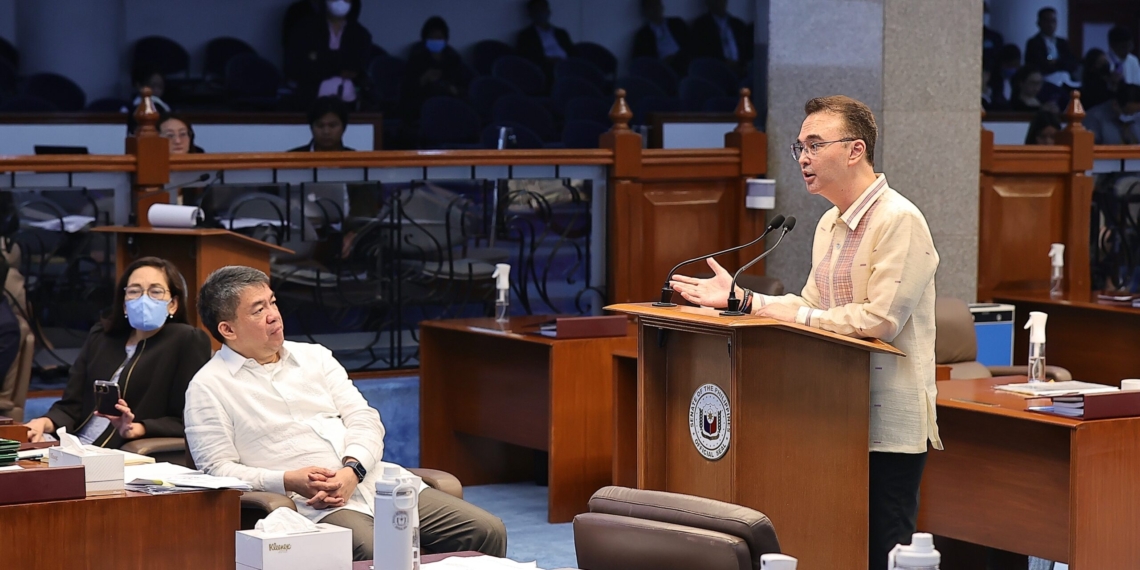Senator Alan Peter Cayetano has expressed approval of the idea to transfer the task of assessing the income level of every local government unit (LGU) from Congress to the Department of Finance (DOF), saying it is not only beneficial, it is also constitutional.
One of the few lawyers in the Senate, Cayetano said allowing the DOF to take on the job will speed up the process, thereby ensuring that the resources the LGUs receive from the national government match their respective needs.
Cayetano made the assertion on August 2, 2023 during the period of amendments for Senate Bill No. (SBN) 2165 or the “Automatic Income Classification of Local Government Units” sponsored by Senate Committee on Local Government chair Senator Joseph Victor “JV” Ejercito.
The independent senator said with the standards clearly defined in the proposed measure, SBN 2165 is “valid and constitutional,” citing Section 5 which sets the standards for the Secretary of Finance’s administrative authority.
This includes the authority to reclassify the income of LGUs once every three years, and consider inflation and gross regional domestic product in evaluating if an LGU has experienced prolonged economic shocks that may warrant retaining its current income classification.
“I agree that it is the Minority Leader’s duty to make sure that we do not keep giving away our powers until wala na tayong gagawin dito. But given the data given by Senator Ejercito na very sporadic talaga, years bago ma-reclassify, [makakatulong kung ibibigay natin sa DOF],” Cayetano said, addressing the concern of Minority Leader Senator Aquilino Pimentel III that the bill could be unconstitutional.
Income classification refers to the income category assigned to every LGU based on its annual regular income, which is a legislative task currently under the Senate and the House of Representatives.
It is used, among others, to determine the LGU’s financial capability to undertake programs and projects, the amount of financial grants and other forms of assistance the LGU shall receive, and the appropriate maximum tax ceiling that the LGU can impose.
It is the DOF that manages the financial resources of the government and oversees the revenue operations of all LGUs, among others.
‘Delegation has been done before’
If passed, SBN 2165 will delegate the task of determining the income classification of LGUs to the DOF.
The bill aims to ensure that the income classification of LGUs “conform[s] with the prevailing economic conditions and the overall financial status of local governments.”
Cayetano said while the Senate deems every legislative responsibility important, it should be ready to delegate the said task to “ensure na may magre-reclassify [ng income level ng LGUs].”
He said Congress, after all, has done the same in the past with wages through the Regional Tripartite Wages and Productivity Board (RTWPB).
“Wage is one of the very, very important — in fact, it is existential. Pero we delegated that to wage boards,” he noted.
He said doing the same thing with income classification does not necessarily mean Congress is “giving away our powers until wala na tayong gagawin dito,” nor is it losing the power to intervene when necessary.
Lawmakers, he said, can also still pass laws regarding income classification, similar to how they can pass laws for wage increases despite the wage boards being in charge of the implementation.
“When we feel that the delegated power is either not done, is doing it not that well, or whatever, [Congress can step in]. There are standards,” he said.
“It will be now up to the courts if it is brought there,” he added.###






